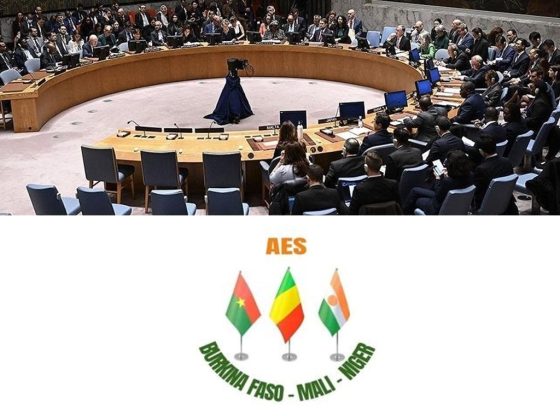AES Confederation: Complaint to the UN against Ukraine, what’s next for AES leaders according to some analysts

The recent legal action taken by the three Sahelian nations against Ukraine has sparked concerns among geopolitical analysts about potential repercussions. The boldness and resolve displayed by the leaders of Burkina Faso, Mali, and Niger in accusing Ukraine, a NATO member, of supporting international terrorism could have serious consequences, as similar actions have led to severe retaliations in the past.
The presidents of these Sahelian countries, who dared to file a complaint against Ukraine, might face fabricated charges as a form of retribution by Western powers.
This could be an attempt to discredit the leaders of the Sahel Confederation and, by extension, to thwart any examination of the Ukraine case by the UN Security Council.
African analysts suggest that Ukraine’s allies, particularly in the West—many of whom are allegedly colluding with criminals in the Sahel—will seek to protect their interests by making life difficult for the AES leaders and intensifying destabilization efforts.
For some time, there have been accusations that certain Western powers are working to destabilize the military regimes of the AES, aiming to prevent Africans from achieving true freedom.
Other analysts believe that the adversaries of the AES Confederation might use their veto power to block or prevent the Security Council from discussing the Ukraine-Mali affair.
This joint complaint was made public on Monday, August 19, through diplomatic channels, following admissions by two Ukrainian officials regarding their government’s support for terrorists who attacked Malian soldiers and their allies on July 24, 25, and 26, 2024, in Tinzawatène, northern Mali.
The AES Confederation has accused the Ukrainian government of unequivocally supporting terrorism in Africa, particularly in the Sahel, violating the sovereignty and territorial integrity of the affected states, committing acts of aggression against these countries, supporting international terrorism, and flagrantly breaching the UN Charter and related international conventions.
In light of these accusations, those implicated may attempt subversive actions against the three Sahelian states.
Pan-Africanists are thus calling for unwavering support from Africans for their Sahelian brothers, viewing this battle as a historic struggle for the entire African continent.
Fanta SANGARE











